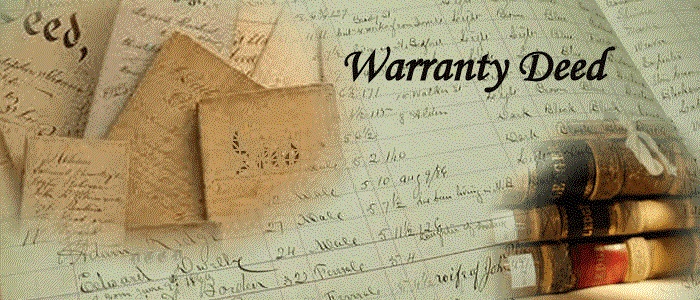Warranty Deed - California
What Is A Warranty Deed?
By Nathan KatzWarranty deeds are used in the vast majority of real property sales transactions. Therefore, it is useful for prospective buyers and sellers to understand specifically what they include and how they differ from other deeds. Before delving into the precise definition, however, a little background on the general topic of deeds is in order.
The purpose of a deed is to formally record the conveyance or transfer of real property from one party to another one. Deeds should not be confused with contracts for sale, as the latter represents a promise to transfer property in exchange for money (or something else of value), whereas a deed represents the transfer itself.
Deeds typically include a full legal description of the parcel of property being conveyed. This could consist of a lot number within a platted subdivision or perhaps a metes-and-bounds description of a rural parcel. Deeds also identify the party transferring his or her interest in the property (grantor) and the party receiving that interest (grantee). Addresses of the parties will also be included.
It is not uncommon for individuals contemplating a property conveyance to ask the question "what is a warranty deed?" Fortunately, the distinction between a warranty deed and a quitclaim deed is relatively easy to understand. When a seller provides a warranty deed, he or she is affirmatively stating and guaranteeing that he or she is the lawful owner of the property being transferred and that no outstanding liens or claims to it exist. Such a deed explicitly warrants that there is no other party able to assert a higher priority claim to the property's title.
Should any or all of these guarantees prove erroneous, the buyer will have the ability to seek compensation for losses sustained as a result. To provide an additional backstop against harm stemming from subsequent disputes about the warranties made, title insurance policies are available to protect the interests of the purchaser or his or her lender.
Warranty deeds are readily distinguishable from the other common type of deed used in real property transactions, the quitclaim deed. These deeds tend to be used primarily when property is not being sold, but is instead being passed to another party due to death, marriage, divorce or placement into a trust. This type of deed is not meant to provide warranties regarding the legitimacy of the title being transferred. Rather, it merely formalizes the grantor's transfer of whatever interest he or she actually possess at the time of the conveyance, even if that interest should later prove defective.
Quitclaim deeds provide buyers no avenue of recourse if title issues later emerge, and that is why they are thought to represent greater risk. However, quitclaim deeds are used most often when property is being transferred among family members, thus reducing the need for greater protections.
Anyone likely to participate in a real property transaction ought to familiarize themselves with deeds, their purpose and the essential information they need to include. Asking the question "what is a warranty deed?" is something both buyers and sellers should do well in advance of signing on the dotted line.

 Download a Valid
Download a Valid